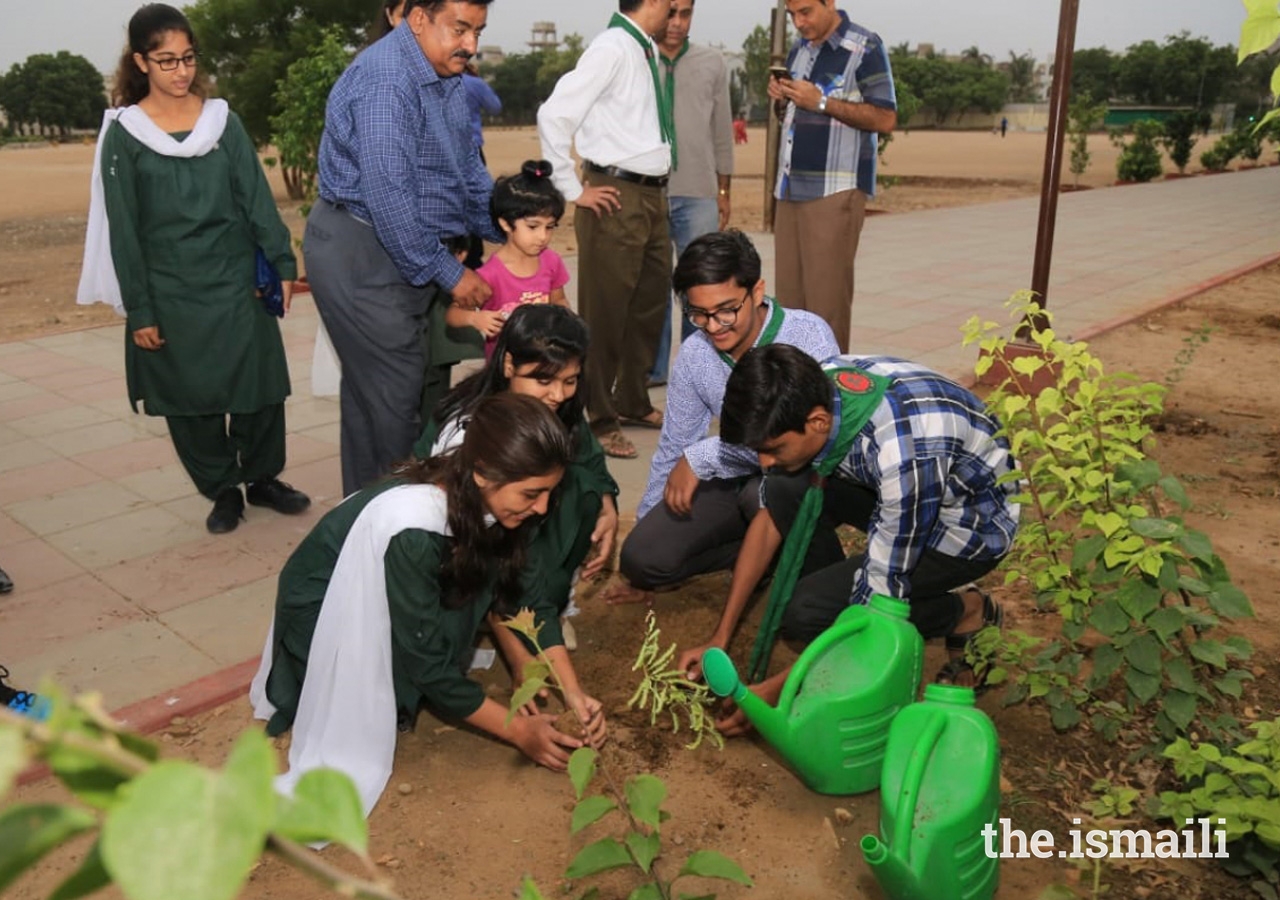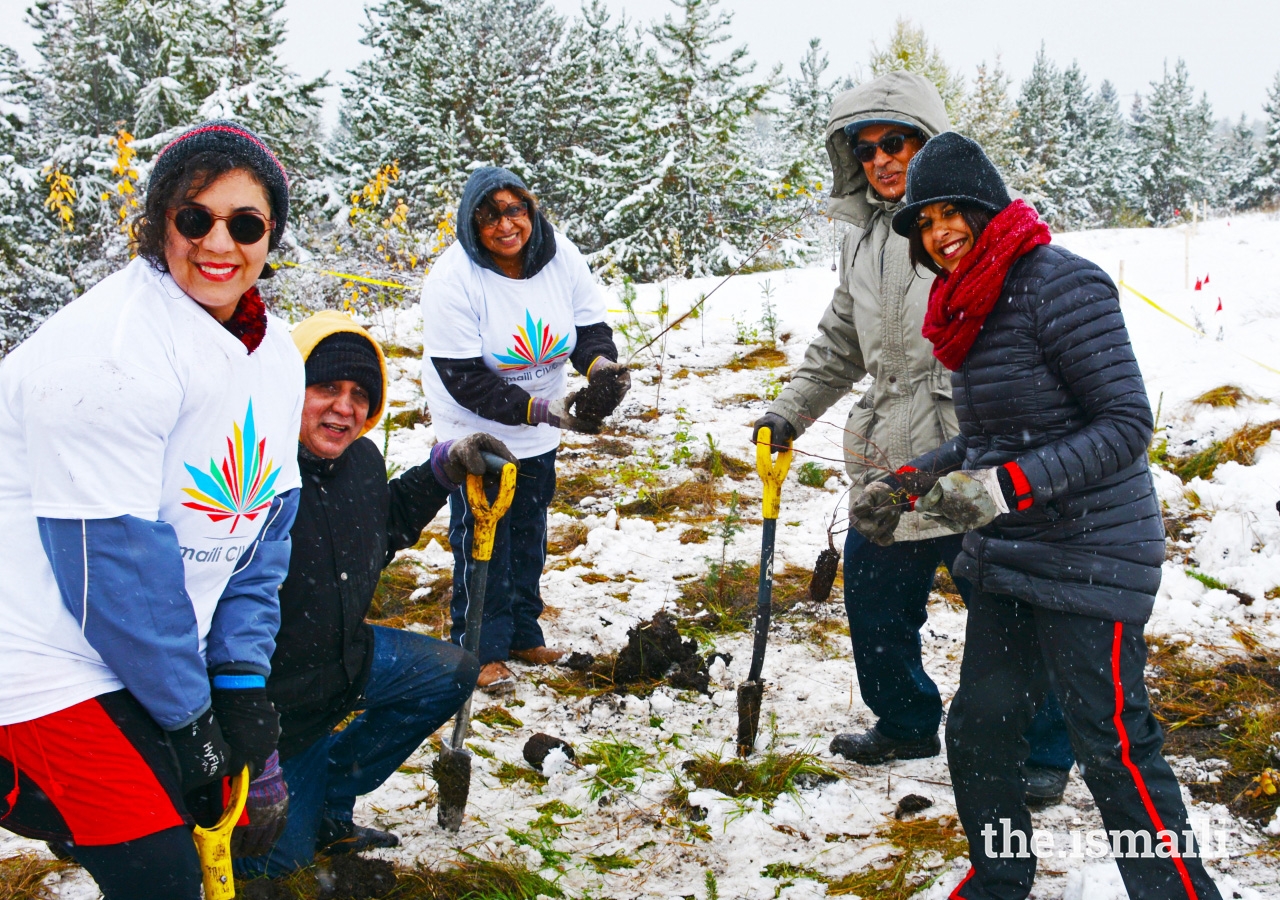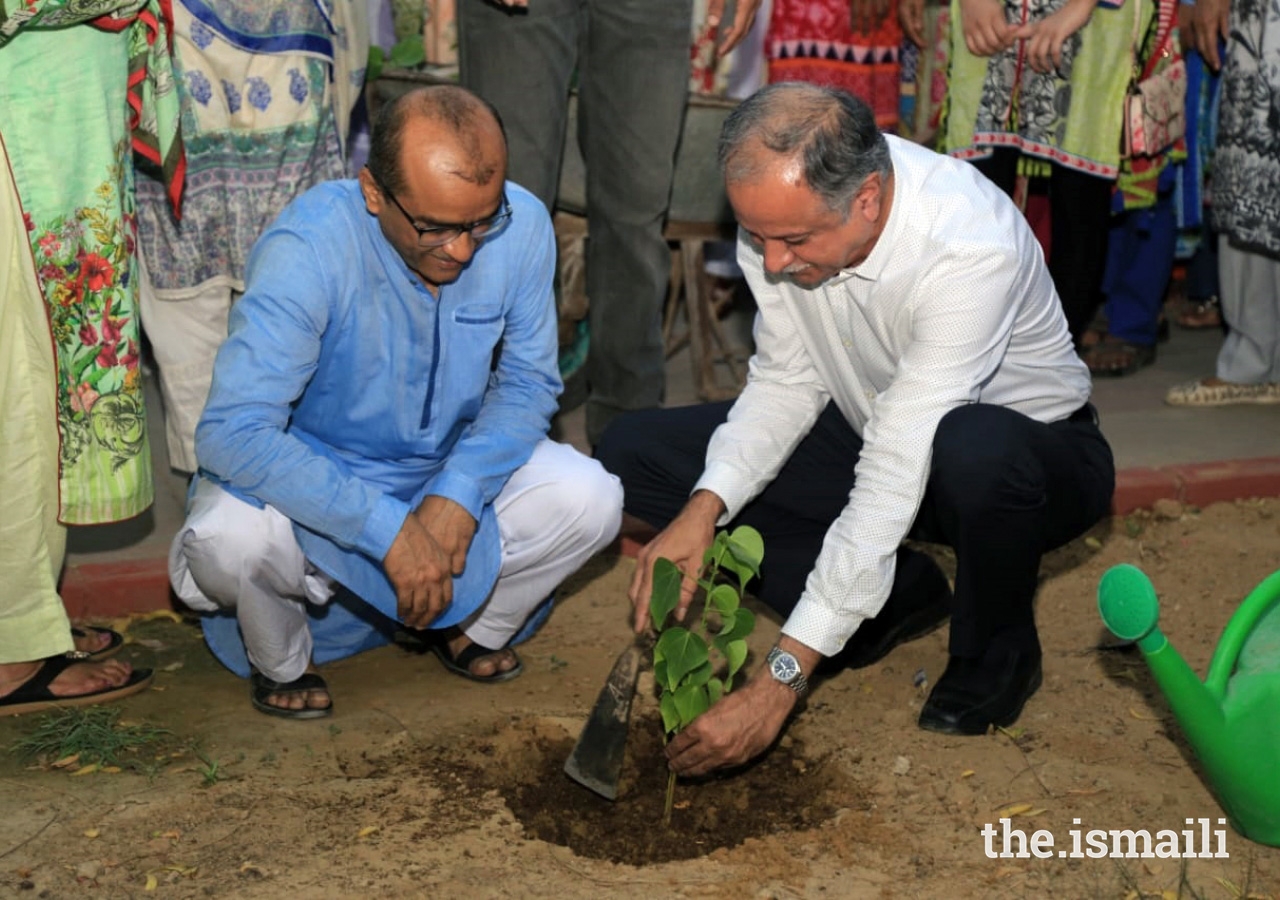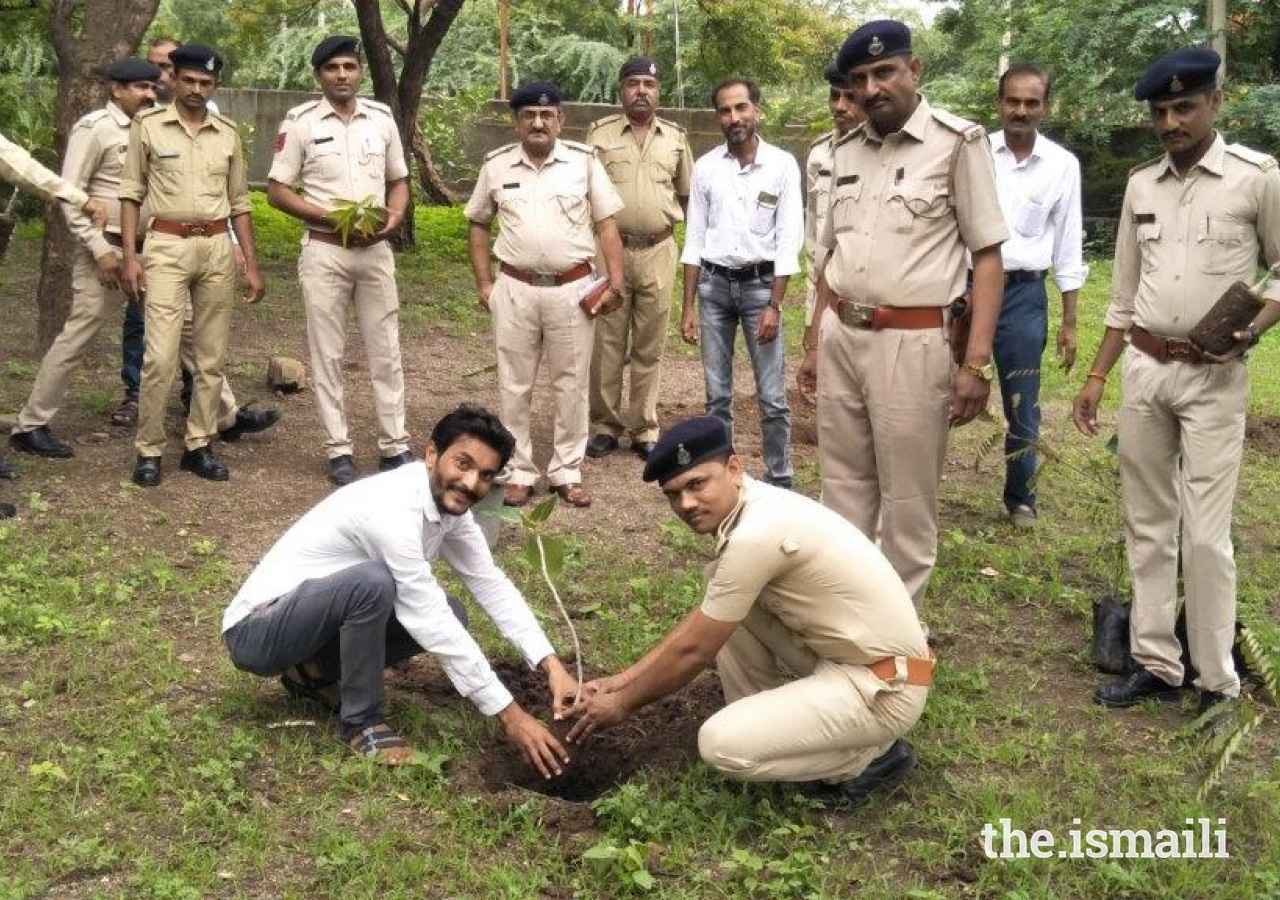In recent months, institutions in India, Pakistan, and Canada have held tree-planting events as part of their programming.
Trees contribute to our ecosystem by providing oxygen, improving air quality and ocean health, and supporting local wildlife. Planting trees is an important part of environmental stewardship, one that contributes to the mitigation of climate change.
As Mawlana Hazar Imam said during the inauguration of the Aga Khan Garden, Alberta on 16 October 2018: “For a central part of the garden tradition is the high calling of human stewardship, our responsibility to honour, to protect, and to share the gifts of the natural world.”
In Pakistan, leaders of Jamati institutions, along with Girl Guides, Boy Scouts, and members of the Ismaili Volunteer Corps came together for a tree-planting campaign to commemorate the 71st independence day of Pakistan. More than 1,000 participants planted 1,600 indigenous plants at different locations in Pakistan.
Amin Lakhani, President of the Ismaili Council for the Southern Region of Pakistan said of the programme, “I am very glad that the Aga Khan Youth and Sports Board for the Southern Region has taken on this planting initiative on the occasion of Independence Day. I hope that this drive, which was led by the Scouts and Guides of the region, will lead to greater awareness about being environmentally-friendly. Moreover, it will encourage the Jamat to inculcate the habit of playing an active role in improving the environment.”
In India, the Aga Khan Agency for Habitat (AKAH) team in Rajula facilitated the planting of 100 different types of saplings to ensure environmental diversity and security. The tree planting programme was organised in collaboration with the Gujarat Forest Department and the local police force.
The different species of saplings were chosen to ensure their long-term survival, which is one of AKAH’s key aims when planting trees. Tree planting and ensuring their survival is one of AKAH’s strategic goals to counter the effects of climate change through adaptation and mitigation initiatives.
The event at Rajula is a continuation of the tree-planting drive initiated on World Environment Day in June, and is a small but significant milestone in AKAH’s goal of planting and sustaining a total of 15,000 trees in India in 2018.
Most recently, in Edmonton, Canada, over 100 members of the local Jamat braved winter conditions, showing up on a snowy day to help plant trees as part of the City of Edmonton’s Root for Trees initiative. Across the country, a total of 2,100 trees were planted with the help of Ismaili CIVIC, a nation-wide initiative to facilitate Jamati contributions to Canadian civil society.
“Our primary objective behind the tree planting activity was to highlight the theme of environmental stewardship. said Arif Karmali from the Ismaili Council for Edmonton. “We saw that the AKDN itself has planted over 100 million trees over the past 25 years and wanted to continue to strengthen this ethos within the Jamat of all ages. We had volunteers from as young as two years old to seniors as old as 90 come out and plant over 1,800 trees,” Karmali said. “The physical act of digging a hole with your hands, planting a young sapling and tending to the soil, is one that resonated deeply with our volunteers.”
The initiative was particularly timely, occurring as it did in the weeks leading up to the inauguration of the Aga Khan Garden, Alberta. “What better way to infuse a deep respect and awe for the natural environment than to see its power reflected in the stunning design of the Aga Khan Garden,” Karmali noted. “The kind of space where, in Mawlana Hazar Imam’s words, ‘the ephemeral meets the eternal, and where the eternal meets the hand of man’.”












